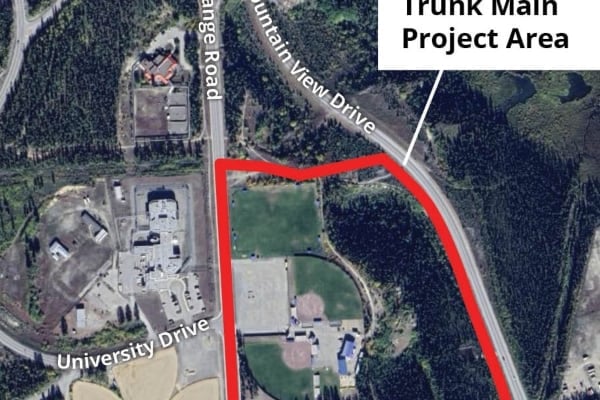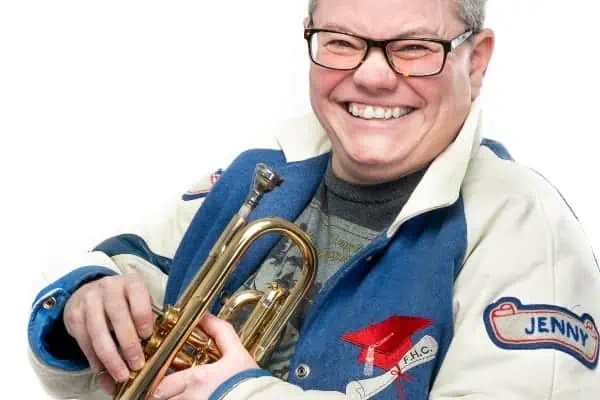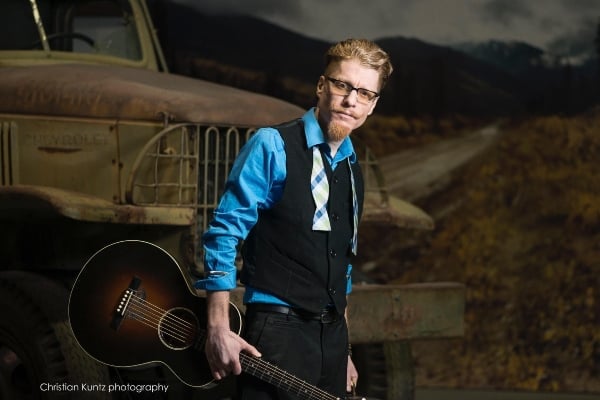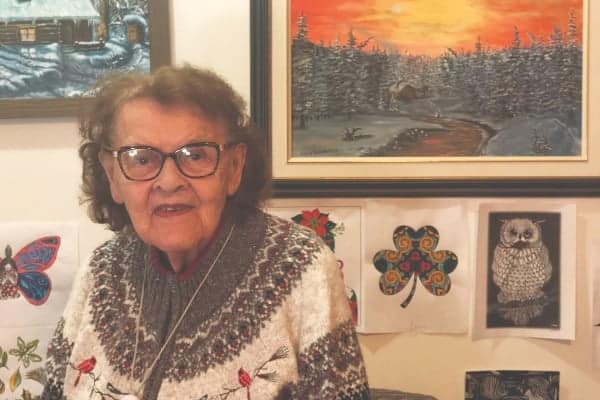Gwich’in sisters practise ancestral skills to honour their heritage and their family, and to help with their healing journey
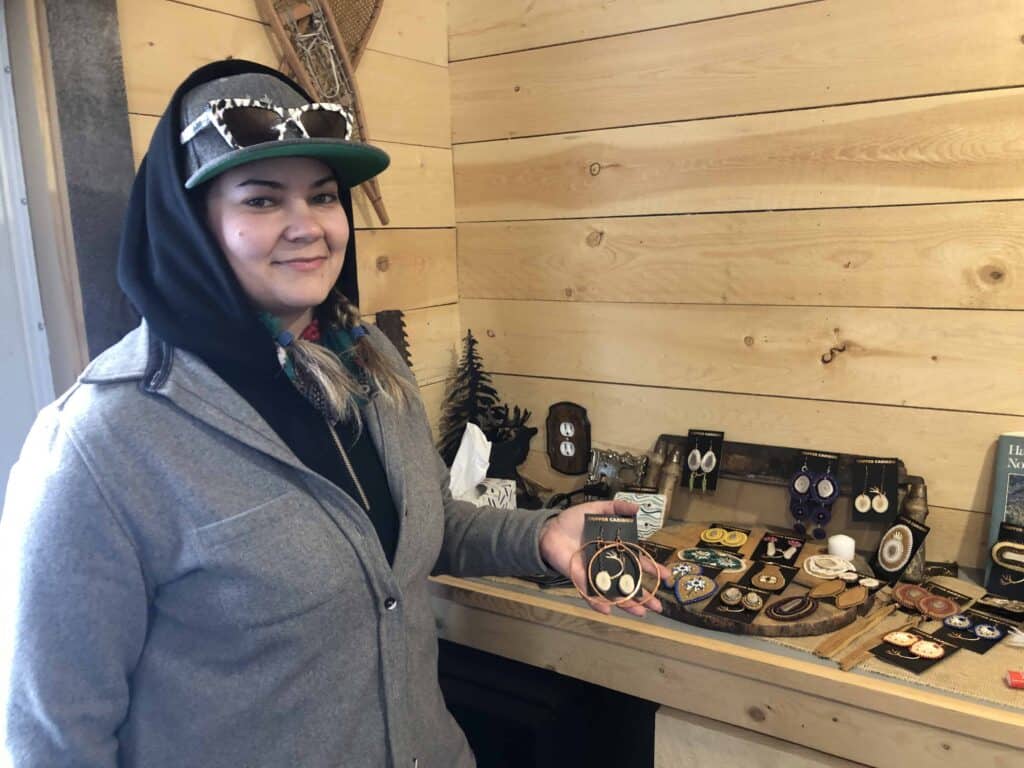
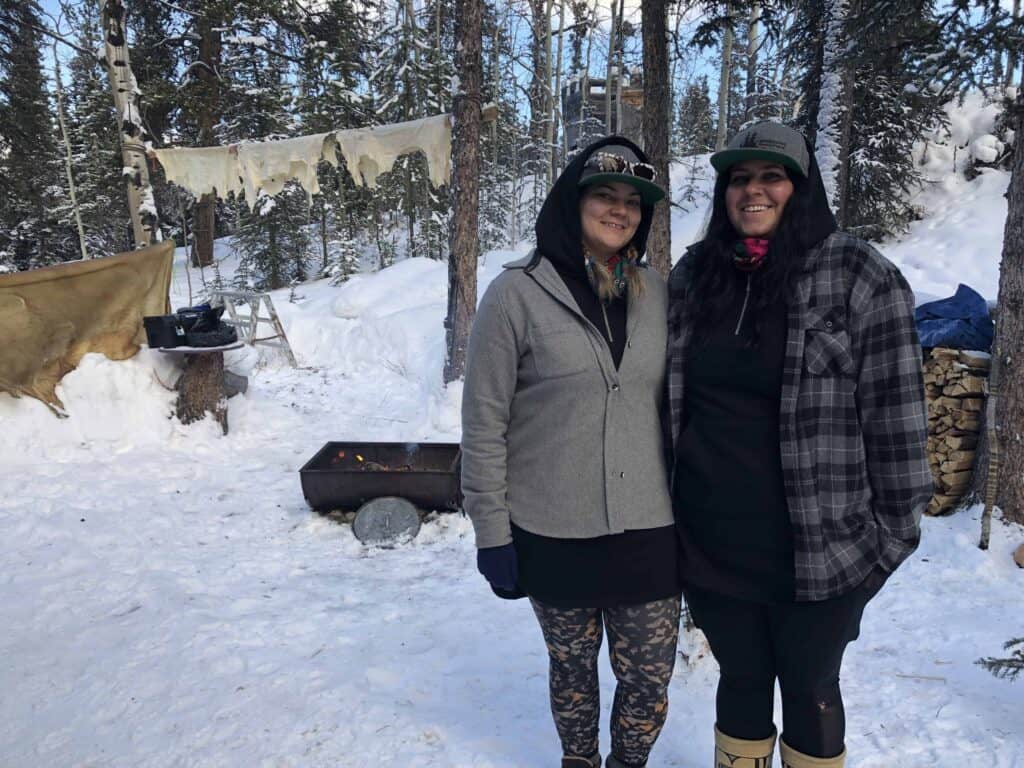
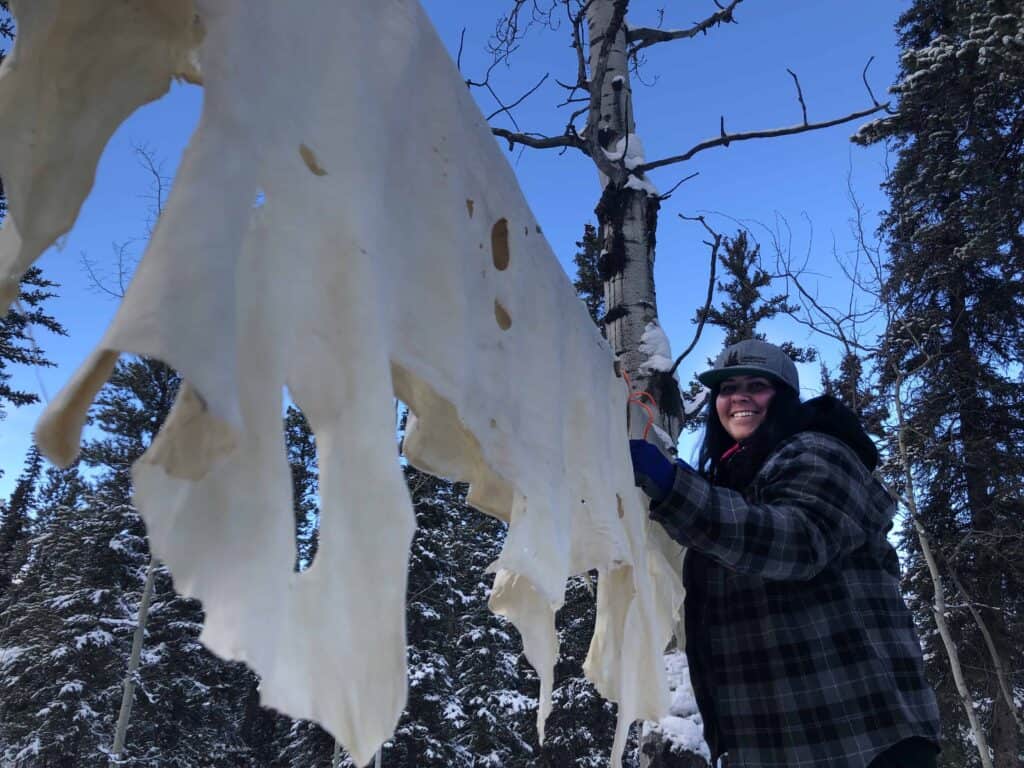
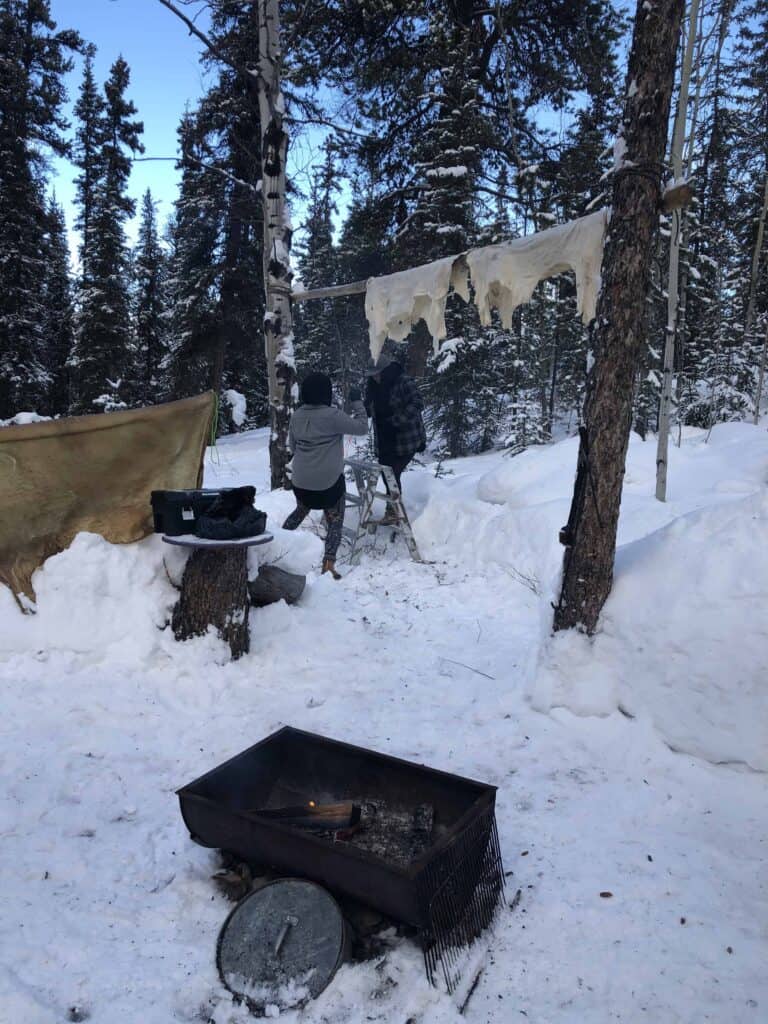
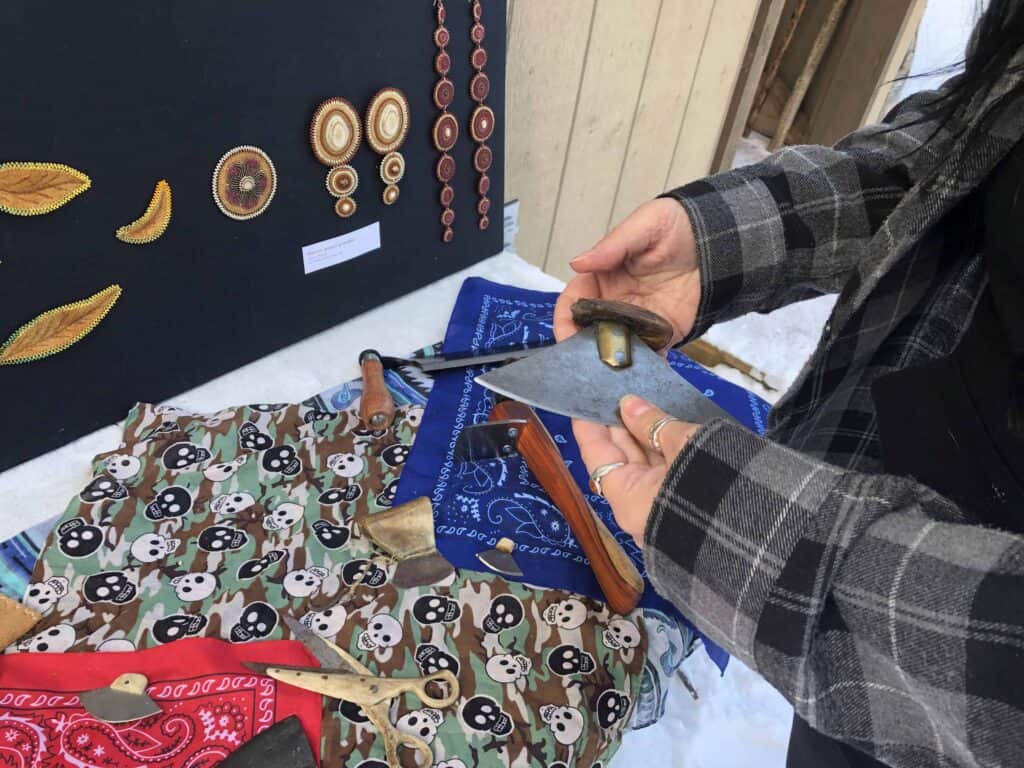
On a winter afternoon, Montana and Delaney Prysnuk are hanging a caribou hide to dry in the sun. It has taken months of work—scraping, stretching and smoking—to prepare the hide, and countless generations of ancestral knowledge, passed down through the family, to refine the skills involved.
“The caribou is such an important animal to the Gwich’in People. It’s how we survived since time immemorial,” said Montana. “We live down here in Whitehorse, but using the caribou is our way to connect to that culture and history.”
The sisters, who are Vuntut Gwitchin, Ukrainian and Scandinavian, say hide work is “embedded in their DNA.” They grew up hearing stories of their ancestors: strong matriarchs who took on the physically challenging work of tanning hides—transforming an animal skin into a soft, durable leather—to clothe and shelter their family.
Montana and Delaney knew that ancestral knowledge was inside them, and they waited for the right time to wake it up.
In early 2020, the sisters’ busy lives slowed down. COVID-19 pandemic restrictions gave them a chance to pause and reflect. Just months earlier, in June 2019, they lost their younger brother, Mckeehan. And in 2014, they lost their cousin, Stephen Mills Jr., who was like a brother to them.
“I definitely think that after our brother passed away, hide tanning saved my life a little bit,” said Montana. “We’ve dedicated our hide tanning journey and this hide camp to Stephen and Mckeehan because they’re not with us anymore. It’s what keeps us going.”
Montana took a hide tanning course with Margaret Douville at the Kwanlin Dün Cultural Centre, and the sisters relied on their community of friends and family to share knowledge, materials and support as they built their skills.
“Learning to tan hides gave us purpose and we were able to feel that connection to something we knew was in our blood,” said Delaney. “I finally felt grounded. It was very healing and it just felt right.”
They had saved the hides from Stephen Mills Jr.’s feast, for many years, which had been harvested by Mckeehan and their cousin Yudii. They decided it was time to pull the hides out of cold storage and get to work.
The sisters created a hide camp on the land beside the home they grew up in. Their father, Allan, helped them build a warming hut with comfortable places to sit, a woodstove and warm drinks. Just outside, they placed a firepit for smoking hides and sharing stories. The pit’s cauldron was welded by Mckeehan, who was a talented mechanic and maker.
“People are drawn to the fire,” said Montana. “You’ll hear youth tell stories that they’re just remembering now, and they’ve never really told anyone before. Like, ‘Oh yeah. I think I remember my grandma talking about hide tanning. Oh, I did that with my grandma when I was little.’”
Montana and Delaney use the camp to spend time on the land developing their traditional skills. They also invite others to come, learn and heal with them.
“Relearning our cultural practices is a form of healing from past traumas and current traumas,” said Delaney. “We want to provide a space where people can feel comfortable and relearn the things our generation lost and were taken away from us; the culture practices that people haven’t been able to practice in many, many years.”
The sisters have run hide camps for school groups and through the Yukon First Nation Education Directorate.
“It’s really cool to see that connection,” said Montana. “In some kids, it’s totally a spark that happens and they feel empowered and proud.”
Their best days at camp are when they can help engage youth who are going through a hard time or have not been inspired in school.
“We had one teacher come over at the end of the day and say, ‘Thank you so much. I haven’t seen some of these kids do anything, and they actually picked up tools and worked on hides. This is a solid win for me today as a teacher,’” said Montana. “That’s such a great compliment. Yeah, I was tearing up.”
The hide camp is a new addition to Copper Caribou, a business the sisters have been growing and developing for more than a decade. It began as a way to make some extra cash while they studied at the University of Northern British Columbia in Prince George.
At that time, Delaney took an odd job cleaning up a construction site where she was able to salvage scraps of copper wire destined for the landfill. The pair started making jewelry by wrapping the copper wire around interesting shells and rocks that they had collected over the years.
“I have always been inclined to dig up things out of the earth and see the beauty in them,” said Delaney.
After moving back to Whitehorse, they started incorporating cross-sections of caribou antler into their designs. Inside each antler is a unique pattern of coloured rings, depending on the age of the animal and where the antlers were kept after they were shed.
“A lot of the antlers we use are donated by friends and family who hunt and spend time on the land,” said Delaney. “A good community connection, as well, for our family.”
Now, the ringed cross-sections of antler, paired with colourful beadwork, have become a hallmark of the sisters’ designs. Their handmade earrings and necklaces sell for hundreds of dollars at local shops and markets.
Over the past few years, the Adäka Cultural Festival has given Copper Caribou the opportunity to branch out into fashion design. In 2022, they designed and created two outfits for the Dà Ze Tsàn (From Our Hearts) fashion show, with help from their mother, Penny, a talented sewer and beader.
“When we created those bigger pieces, last year, it was a whole new invigorating feeling,” said Delaney.
“There’s a whole other world that we could get into.”
Delaney and Montana were also selected to attend Indigenous Fashion Week Toronto, in 2022, as part of the Fashion Forward initiative supported by the Yukon First Nations Culture and Tourism Association and the Yukon government.
“I hope people feel strong when they wear our stuff,” said Montana. “I hope it gives them a sense of power.”
Their fashions reflect ties to their culture and heritage and also their commitment to upcycle and reuse materials. In fact, their Mossy Raven blazer is covered in feathers crafted from salvaged bike tire tubes.
Being able to move from making jewelry, to designing fashions, to working at their hide camp, keeps the sisters from getting burned out.
“There are so many heavy things going on in the world right now, but we try to keep grounded and take breaks as needed,” said Montana. “It’s important to make sure your brain is okay, and your body and your soul feel right, too.”
In the future, the sisters plan to grow their hide camp and continue their learning and sharing journey.
“I like to support kids, especially youth, these days,” said Montana. “It’s a tough time for a lot of people, and just having something to feel proud and passionate about is really important for everybody.”
Find out more about Copper Caribou at Montana and Delaney’s new website, which launched March 1 at coppercaribou.com

